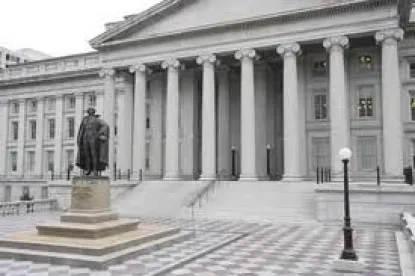Yesterday, the U.S. Department of the Treasury’s Office of Foreign Assets Control (OFAC) designated 271 Syrians accused of serving the Government of Syria as employees of the Scientific Studies and Research Center (SSRC). OFAC announced this action in response to the April 4 sarin gas attack in Khan Sheikhoun, Syria. The U.S. government used sanctions to respond to previous chemical weapons attacks. On January 12, 2017 OFAC announced the designation of six SSRC officials following three separate chlorine gas attacks against civilians.
OFAC is likely to continue designating individuals and entities the U.S. government alleges to be responsible for chemical attacks on civilians. This could lead to targeting significant Iranian interests that would jeopardize the Joint Comprehensive Plan of Action. In the meantime, compliance programs should assess their current procedures against OFAC screening expectations.
Designation Criteria and Delisting Petitions
President George W. Bush listed the SSRC in the annex of Executive Order (E.O.) 13382, the weapons of mass destruction designation authority. Interestingly, while OFAC identified the 271 Syrians as employees of the SSRC, the designations are not derivatives of that Syrian agency. OFAC could have relied upon the alleged employment relationships to list the individuals for acting for or on behalf of, or providing support and or services to the SSRC. OFAC chose, however, to use E.O. 13582, which authorizes the designation of individuals that provide support or services, or act for or on behalf of the Government of Syria.
Government-based designations typically gain interagency approval in significantly less time than those based on other criteria. OFAC likely used the Government of Syria authority to expeditiously respond to the Assad regime’s use of chemical weapons. The agency may have also compared the likelihood of successful petitions for removal under the respective authorities.
Many of the designees are highly educated individuals who are likely to challenge their listings. As OFAC claims in Frequently Asked Questions published last week, the “ultimate goal of sanctions is not to punish, but to bring about a positive change in behavior.” The designees who petition for removal will find that credible demonstration of this “positive change in behavior” will be a difficult burden to meet. They will likely remain designated if their response is limited to disassociation from the SSRC. Alternatively, if the designations were derivatives of the SSRC listing, such disassociation would lead to eventual removals from the list.
OFAC Screening Expectations
Many of the 271 designees have relatively generic names, such as Muhammad Abdullah, Ahmad Salim, and Susan Layla. The false positives created by such generic names present a clear and relatively well understood compliance risk. However, the longer names may actually produce a greater risk of noncompliance, especially for businesses that do not incorporate automated screening into their compliance programs.
For example, OFAC listed a Syrian national named Muhammad Nadim Subhi Zihar, with a March 29, 1955 date of birth. OFAC expects companies to block transactions involving this individual based on all 24 combinations of his name which also match his date of birth.
OFAC first articulated this expectation in a relatively minor $23,937 civil penalty against Wells Fargo. This 2013 settlement resolved apparent sanctions violations arising from the bank’s failure to screen dates of birth with combinations of full names. Those violations involved prohibited services the bank provided to Claudia Aguirre Sanchez (identified as Claudia Aguirre) and Carlos Antonio Ruelas Topete (identified as Ruelas Topete and Carlos A. Ruelas).



 />i
/>i

